Filter by

Opposing power : building opposition alliances in electoral autocracies
Opposing Power argues that perceptions of regime vulnerability and mutual dependency by opposition elites shape the building of opposition alliances. When electoral autocracies are consistently dominant, opposition parties eschew fully fledged alliances. At best, they allocate only one candidate to contest against the incumbent in each subnational electoral district to avoid splitting the oppos…
- Edition
- edision 2
- ISBN/ISSN
- 9780472133000
- Collation
- xiii. :313 p.
- Series Title
- -
- Call Number
- 322.4. OPP e
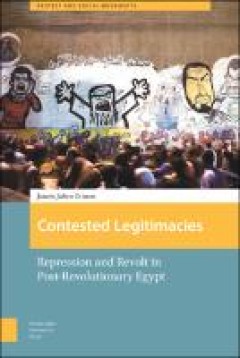
Contested legitimacies : repression and revolt in post-revolutionary egypt
Since the military overthrow of President Mursi in mid-2013, Egypt has witnessed an authoritarian rollback. Through a combination of repression and nationalist securitizing discourses, popular pressure for reform was successfully channelled into a state-centric model of governance. But despite state violence and the restriction of public spaces, protests have anything but ceased. Contested Legi…
- Edition
- edision 9
- ISBN/ISSN
- 9789048553457
- Collation
- 353 p. ;ill.
- Series Title
- -
- Call Number
- 320.962. CON j
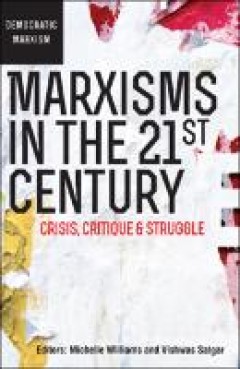
Marxisms in the 21st century : crisis, critique & struggle
The current resurgence of Marxism is based on new sources of inspiration and creativity from movements that seek democratic, egalitarian and ecological alternatives to capitalism. The Marxism of many of these movements is neither dogmatic nor prescriptive, but rather, open, searching, utopian. It revolves around four primary factors: the importance of democracy for an emancipatory project; the …
- Edition
- 13
- ISBN/ISSN
- 9781776147052
- Collation
- vi, 304p.
- Series Title
- -
- Call Number
- 307.14 BON m
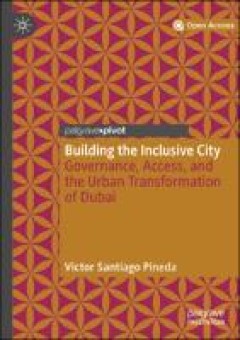
Building the Inclusive City : Governance, Access, and the Urban Transformatio…
This Open Access book is an anthropological urban study of the Emirate of Dubai, its institutions, and their evolution. It provides a contemporary history of disability in city planning from a non-Western perspective and explores the cultural context for its positioning. Three insights inform the author’s approach. First, disability research, much like other urban or social issues, must be si…
- Edition
- -
- ISBN/ISSN
- 9783030329884
- Collation
- xvii, 169 p. ill;
- Series Title
- -
- Call Number
- 307.1216095357 BUI V

Translating human rights in education : the influence of Article 24 UN CRPD i…
The 2006 United Nations Convention on the Rights of Persons with Disabilities (UN CRPD) is the first human rights treaty to explicitly acknowledge the right to education for persons with disabilities. In order to realize this right, the convention’s Article 24 mandates state parties to ensure inclusive education systems that overcome outright exclusion as well as segregation in special educat…
- Edition
- 2
- ISBN/ISSN
- 9780472902705
- Collation
- xv, 206p.
- Series Title
- -
- Call Number
- 371.909669 TRA b
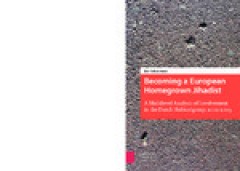
Becoming a European Homegrown Jihadist : A Multilevel Analysis of Involvement…
How and why do people become involved in European homegrown jihadism? This book addresses this question through an in-depth study of the Dutch Hofstadgroup, infamous for containing the murderer of filmmaker Theo van Gogh, who was killed in November 2004 in Amsterdam, and for plotting numerous other terrorist attacks. The Hofstadgroup offers a window into the broader phenomenon of homegrown jiha…
- Edition
- -
- ISBN/ISSN
- 9789462986930
- Collation
- 287 p.
- Series Title
- -
- Call Number
- 363.3 BEC B

The Merger Mystery : Why Spend Ever More on Mergers When So Many Fail?
Statistical studies over the last forty-five years show that, although there are success stories, very many mergers and acquisitions do not result in the increased operating profits that economics textbooks would lead one to expect. As consultancy McKinsey have put it, ‘Anyone who has researched merger success rates knows that roughly 70% fail’. Yet—mysteriously—M&A activity has boomed …
- Edition
- -
- ISBN/ISSN
- 9781800647817
- Collation
- xviii, 180
- Series Title
- -
- Call Number
- HG4028.M4 MER G
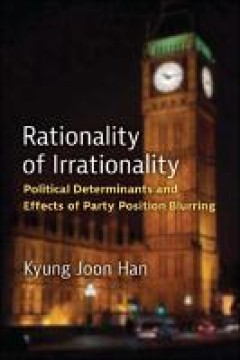
Rationality of Irrationality : Political Determinants and Effects of Party Po…
Citizens in democracies complain that political parties’ positions on major issues are too ambiguous for them to confidently understand. Why is party position ambiguity so common? Are party positions ambiguous because political parties fail in forming clear policies or because they deliberately blur their positions? Rationality of Irrationality argues that political parties are motivated to s…
- Edition
- -
- ISBN/ISSN
- 9780472902910
- Collation
- xiii, 245 p. ill;
- Series Title
- -
- Call Number
- 324.2 RAT K

The advisory roles of political scientists in Europe : comparing engagements …
This open access book centres on the advisory roles of political scientists in Europe. Based on a cross-national survey, the book offers a comparative analysis of the viewpoints and activities of university-based political scientists on external engagement. Political scientists in Europe appear more extrovert as academics than sometimes thought. In their professional functioning they engage in …
- Edition
- 9
- ISBN/ISSN
- 9783030860059
- Collation
- xxx; 421p;
- Series Title
- -
- Call Number
- 320.6094 ADV M
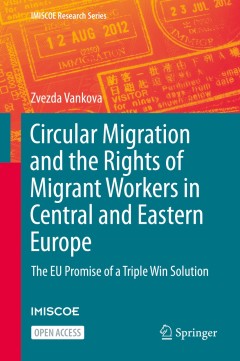
Circular Migration and the Rights of Migrant Workers in Central and Eastern E…
By adopting a rights-based approach, this open access book sheds light on the different legal and policy instruments that have been adopted to implement circular migration policies in the EU and their consequences for the rights of migrant workers. It contributes to the understanding of the meaning of this concept in general, in the EU, as well as more specifically with regard to its Eastern ne…
- Edition
- 10
- ISBN/ISSN
- 9783030526894
- Collation
- xi; 261p;
- Series Title
- -
- Call Number
- 325.24 CIR Z
 Computer Science, Information & General Works
Computer Science, Information & General Works  Philosophy & Psychology
Philosophy & Psychology  Religion
Religion  Social Sciences
Social Sciences  Language
Language  Pure Science
Pure Science  Applied Sciences
Applied Sciences  Art & Recreation
Art & Recreation  Literature
Literature  History & Geography
History & Geography